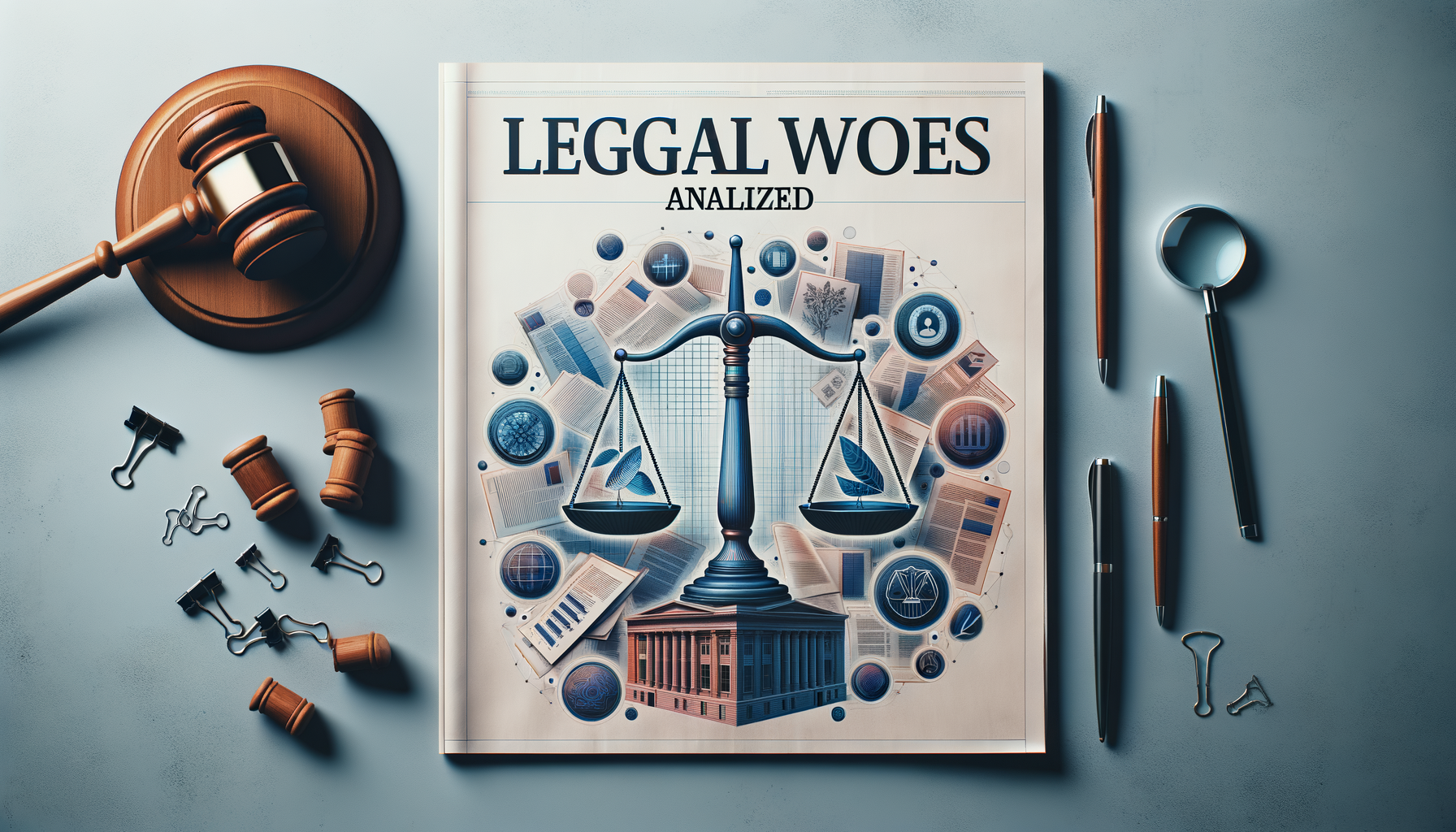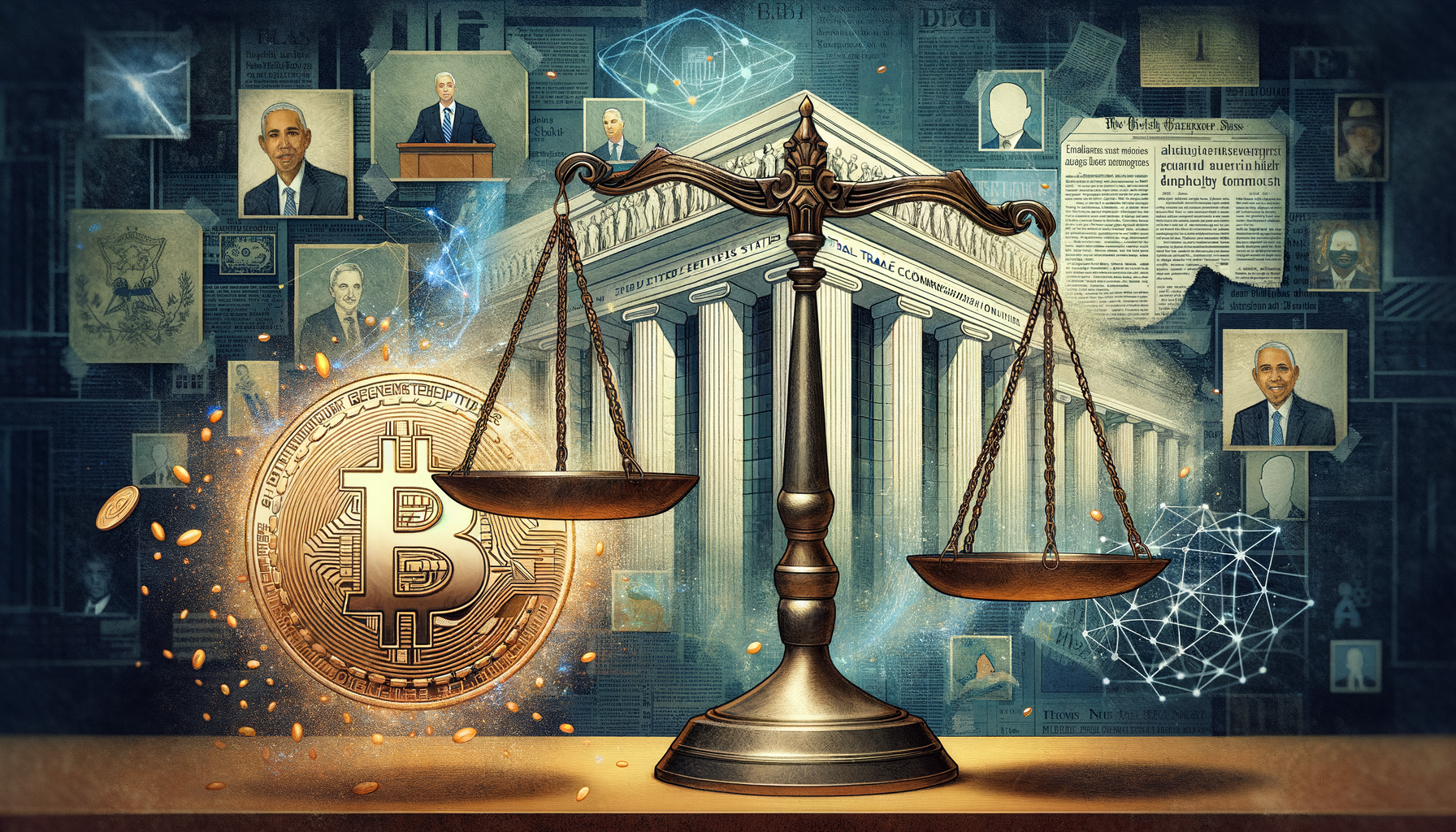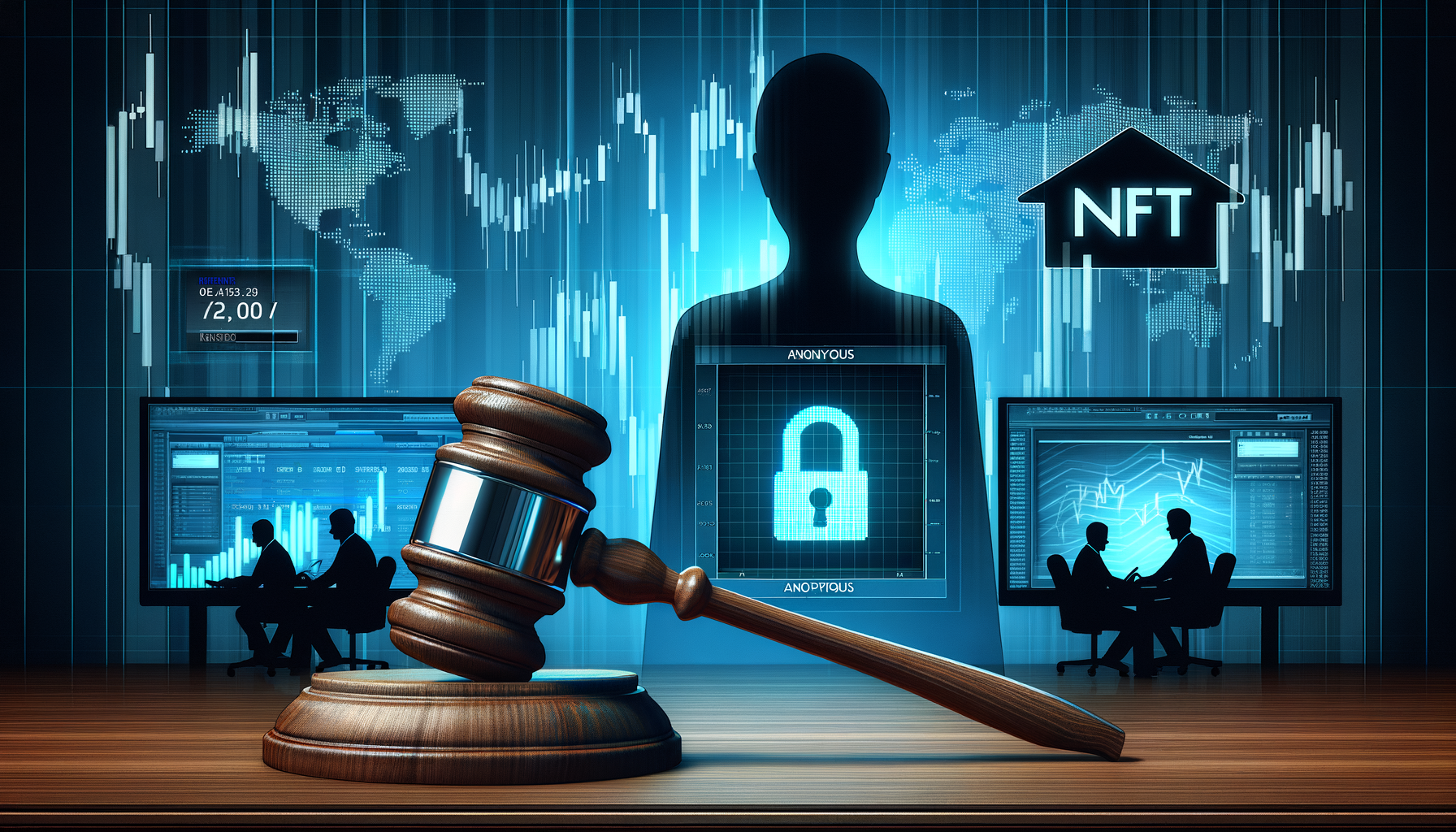Category: Case Briefs
-

USA v. Sam Bankman-Fried
Brief Summary of the Case (IRAC Pattern) Issue: The central issue in the case of USA v. Sam Bankman-Fried is whether the defendant, Sam Bankman-Fried, engaged in illegal activities, including wire fraud, securities fraud, conspiracy, and money laundering, in relation to the operation of his cryptocurrency exchange and trading platform. Rule: The relevant legal rules…
-

New York Attorney General vs. Gemini
Brief Summary (IRAC Pattern) Issue: Did Gemini, a cryptocurrency exchange, engage in fraudulent, deceptive, or illegal practices in violation of New York law, specifically concerning the security, stability, and reliability of its services? Rule: Under New York law, the Attorney General has the authority to investigate and take action against businesses engaging in fraudulent activities.…
-

Legal woes of Celsius
Brief Summary of the Case: The Legal Woes of Celsius Issue: The primary legal issue in the case of Celsius revolves around whether the actions taken by the cryptocurrency lending platform were in violation of securities laws, resulted in a breach of contract, or constituted fraudulent activities that led to significant financial losses for its…
-

SEC v. Coinbase
Case Name: SEC v. Coinbase Brief Summary (IRAC Pattern): Issue: Whether Coinbase, a digital asset exchange, engaged in activities that violated securities laws by allowing the trading of assets that should have been registered as securities. Rule: The relevant legal rules stem from the Securities Exchange Act of 1934 and the Securities Act of 1933,…
-

SEC v. Binance
IRAC Summary Issue: The primary issue in the case is whether Binance, a cryptocurrency exchange platform, violated securities regulations as enforced by the Securities and Exchange Commission (SEC). Rule: The legal rule involves the application of federal securities laws, particularly the Securities Act of 1933 and the Securities Exchange Act of 1934, which require the…
-

The US Federal Trade Commission vs. Bitcoin Funding Team
IRAC Summary: Issue: Whether the Bitcoin Funding Team engaged in deceptive practices in violation of the Federal Trade Commission Act by operating a pyramid scheme that promised high returns on investments in Bitcoin. Rule: The Federal Trade Commission Act prohibits unfair or deceptive business practices. A pyramid scheme is considered a deceptive act, where returns…
-

Santander Bank vs. Mercado Bitcoin
Case Summary: Santander Bank vs. Mercado Bitcoin I. Issue The central legal issue in Santander Bank vs. Mercado Bitcoin is whether Santander Bank’s termination of Mercado Bitcoin’s bank accounts constituted a violation of contract or banking law, and if such termination was justified based on regulatory compliance concerns associated with cryptocurrency transactions. II. Rule The…
-

The Supreme Court of India vs. The Reserve Bank of India
IRAC Summary: Issue: Whether the Reserve Bank of India’s (RBI) action of prohibiting banks and financial institutions from providing services in relation to virtual currencies is legal and constitutionally valid. Rule: The relevant legal provisions include: 1. The Constitution of India, particularly Article 19(1)(g) that guarantees the freedom to practice any profession, or to carry…
-

The US vs. Ross William Ulbricht
IRAC Summary: Issue: Whether Ross William Ulbricht is guilty of creating and operating the online black market Silk Road, which facilitated the sale of illegal drugs and other unlawful goods and services. Rule: The government must prove beyond a reasonable doubt that Ulbricht created and managed the Silk Road website, and that he intended to…
-

Harrison Hines vs. Joseph Lubin
IRAC Summary: Issue: Whether Joseph Lubin breached a contract with Harrison Hines or committed any other actionable wrong in relation to their business dealings. Rule: The elements required to establish a breach of contract are the existence of a contract, the plaintiff’s performance or justification for nonperformance, the defendant’s breach, and resulting damages to the…
-

South Korea’s Bithumb sued for fraud
Case Summary (IRAC) Issue: Whether Bithumb, a South Korean cryptocurrency exchange, engaged in fraudulent activities resulting in losses for investors. Rule: Under South Korean law, entities like Bithumb are prohibited from engaging in deceptive practices that mislead investors. Fraud in South Korea generally involves an intentional act that results in an unfair advantage by deceiving…
-

Oracle vs. CryptoOracle
Case Summary: Oracle vs. CryptoOracle Issue: Whether CryptoOracle infringed upon Oracle’s trademark rights and created brand confusion by operating with a similar name in a related technology sector. Rule: Trademark infringement occurs when a party uses a mark that is the same or confusingly similar to a registered trademark owned by another party in connection…
-

The State of Florida vs. Espinoza
IRAC Summary: State of Florida v. Espinoza Issue: The State of Florida charged Espinoza with the crime of money laundering as he operated a Bitcoin exchange service without a money transmitting license, which, according to the state, was a violation of Florida’s money transmitting and money laundering statutes. Rule: Under Florida law, money laundering is…
-

SEC vs. Trendon Shavers
Brief Summary of the Case (IRAC) Issue: Whether Trendon Shavers and his company, Bitcoin Savings and Trust (BTCST), violated federal securities laws by operating a Ponzi scheme, which promised high returns on investments in Bitcoin-related opportunities but used new investors’ bitcoins to pay existing investors. Rule: Under federal securities laws, including the Securities Act of…
-

New York Office of the Attorney General vs. Bitfinex
Case Summary (IRAC Pattern) Issue: Whether Bitfinex, a cryptocurrency exchange platform, engaged in fraudulent activities and violated New York law by mismanaging customer funds and engaging in unlicensed and fraudulent activities related to the cover-up of an $850 million loss. Rule: The New York Attorney General (NYAG) relies on the New York Martin Act and…
-

Telegram Group: SEC halted a $1.7 billion unregistered digital token offering
Brief Summary: Telegram Group Inc. Securities Case Issue: Whether Telegram Group Inc.’s offering of digital tokens was in violation of the U.S. securities laws by failing to register the offering. Rule: The U.S. securities laws, specifically the Securities Act of 1933, require that any offer or sale of securities be registered with the Securities and…
-

Ripple Labs Inc $1.3 billion unregistered securities offering
Brief Summary of the Case (IRAC Pattern) Issue: The primary legal question is whether Ripple Labs Inc. and its executives conducted an unregistered securities offering of $1.3 billion through the sale of XRP tokens, in violation of federal securities laws. Rule: The Securities Act of 1933 requires that all offerings of securities in the United…
-

Former OpenSea Employee insider trading NFTs
Case Summary: Former OpenSea Employee Insider Trading NFTs Issue: Whether the former employee of OpenSea engaged in insider trading by using confidential information to purchase Non-Fungible Tokens (NFTs) before they were featured on the OpenSea platform, thus benefiting from the increased value once they were promoted. Rule: Insider trading is the illegal practice of trading…
-

OneCoin Ltd pyramid scheme
IRAC Summary: Issue: The central issue is whether OneCoin Ltd operated as a pyramid scheme, violating securities laws and committing fraud against its participants. Rule: Under various jurisdictions’ laws, a pyramid scheme is an illegal business model that recruits members via a promise of payments or services for enrolling others into the scheme, rather than…